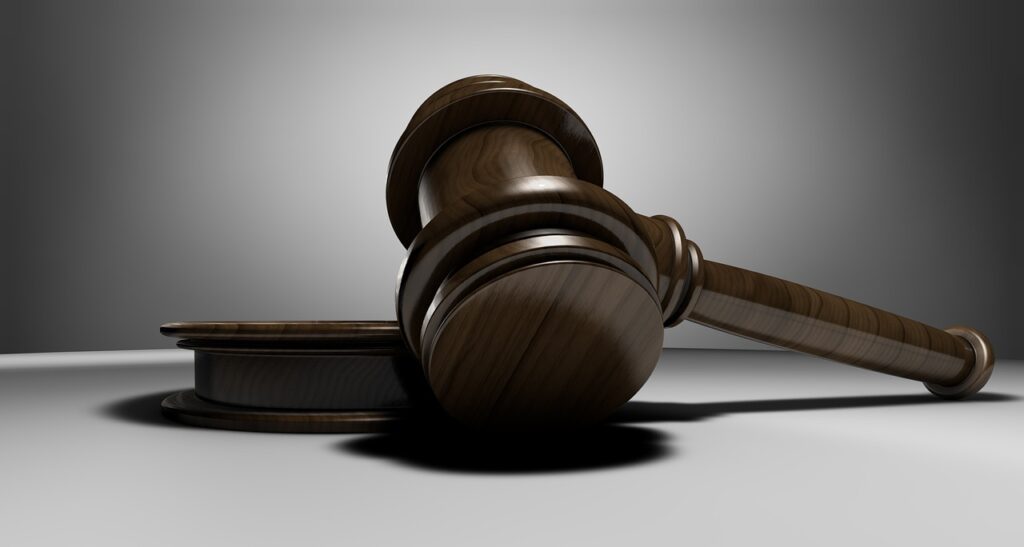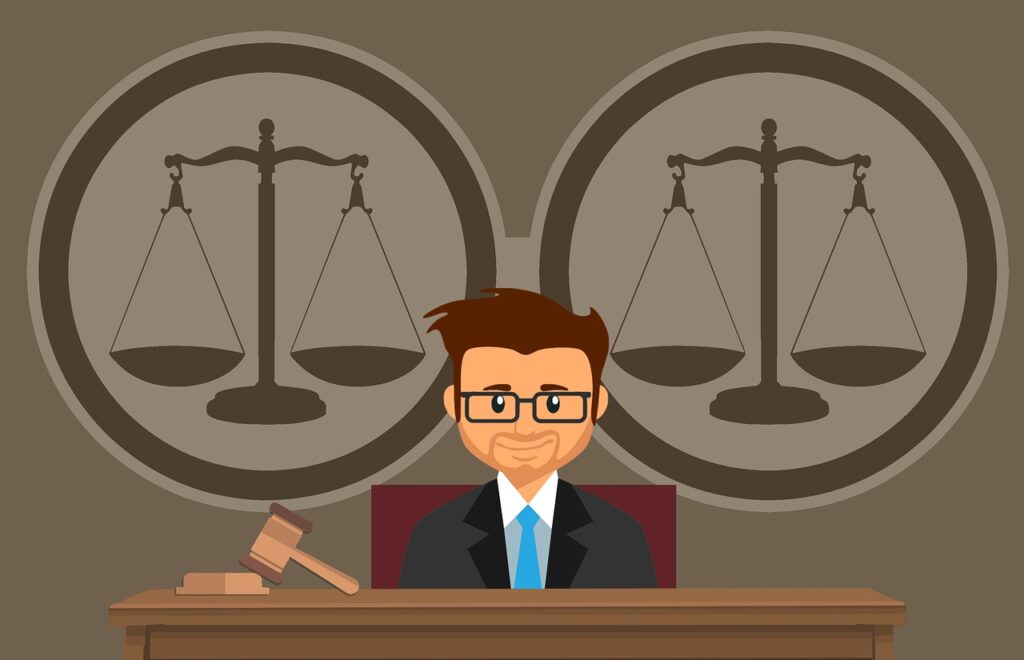Published On: September 30th 2025
Authored By: Safia Shahnawaz
Faculty of Law, Aligarh Muslim University
Abstract
According to the United Nation office on genocide prevention and the responsibility to protect the term “genocide” was first used in 1944 by Raphael Lemkin, a Polish lawyer. Derived from the Greek prefix geno and the Latin suffix cide, the term literally means race or tribe killing.[1]With what we understand as genocide is in betweenParties ,Having considered the declaration made by the General Assembly of the United Nations in its resolution 96 (I) dated 11 December 1946 that genocide is a crime under international law, contrary to the spirit and aims of the United Nations and condemned by the civilised world,Recognising that at all periods of history genocide has inflicted great losses on humanity, and Being convinced that, in order to liberate mankind from such an odious scourge, international co-operation is required where Article 1 says the Contracting Parties confirm that genocide, whether committed in time of peace or in time of war, is a crime under international law which they undertake to prevent and to punish, and Article II acts committed with intent to destroy, in whole or in part, a national, ethnical, racial or religious group, as such , Killing members of the group; Causing serious bodily or mental harm to members of the group; Deliberately inflicting on the group conditions of life calculated to bring about its physical destruction in whole or in part; Imposing measures intended to prevent births within the group;Forcibly transferring children of the group to another group. The Rome statute also defines genocide as specific acts, like killing or causing serious harm, committed with the intent to destroy, in whole or in part, a national, ethnical, racial, or religious group. ICC is solely responsible for all the crimes against humanity and genocide, Earlier the crimes were tried by Tribunals as of recent times its trials of Bosnia and Rwanda genocide. Professors Jeffrey Bachman had previously said that “All genocides are crimes against humanity, but not all crimes against humanity are also genocide,” as crimes against humanity lack intent to destroy a targeted group.[2]
Overview of ICC’s mandate
ICC was created under Rome Statute on 17th July, 1998. It was later effected from 1st July,2002 and was ratified by 60 countries. The purpose of the ICC is being the only court that has the authority to prosecute genocide, crimes against humanity, and war crimes, which are collectively known as “atrocity crimes.”[3] While the ICC’s goal is to prosecute the perpetrators of genocide at the international level, justice is not always so simple and can take many forms at many levels. Justice and healing are not one-size-fits-all concepts, and although the ICC and previous tribunals seek justice at high levels, not all survivors feel that they received justice from the international response. For survivors of genocide, healing is non-linear and is both a personal journey and a collective one for the nations and groups who were affected. Many international efforts have been dedicated to furthering healing and peace in communities post-genocide. If talking about the investigation phases it crosses from preliminary examination, investigation, pre-trial, trial, appeals and final enforcement.
Article 36(1) defines the jurisdiction situation in which an act of aggression would appear to have occurred could be referred to the Court by the Security Council, acting under Chapter VII of the United Nations Charter, irrespective as to whether it involves States Parties or non-States Parties. As a judicial institution, the ICC does not have its own police force or enforcement body; thus, it relies on cooperation with countries worldwide for support, particularly for making arrests, transferring arrested persons to the ICC detention centre in The Hague, freezing suspects’ assets, and enforcing sentences. Outside of the ICC and previous tribunals, local and national courts have been established to hear cases against accused genocide perpetrators. One of the most famous examples of a local justice system in Rwanda,
The limitations included makes the international law a weak law perhaps since it involves a lot of loopholes as the limitation of the ICC is that it is not a police force and cannot make arrests. If the ICC issues an arrest warrant, it is the responsibility of the member states to arrest and bring the accused to court, as they cannot be tried in absentia.It also cannot retrospectively try crimes that occurred before July 1, 2002, before the court’s creation.[4] Justice, in part or whole, cannot be achieved if victims and survivors do not see themselves in the process. Consequently, the mandates given to the investigators must allow them to gather facts, remain neutral, work with local experts, and tell all the victim’s stories.”
Case study- Myanmar
The Rohingya crisis is a well known crisis as a global example of genocide. In 1785 Arakan was over swept by the Bamar, the dominant ethnic group in Burma. The Burmese occupation of Arakan was particularly oppressive. Thousands of Rakhine men were executed and many were deported to central Burma. By 1799, as many 35000 people fled to British Bengal to escape persecution by the Bamar. During the British rule the Rohingya were pro British and got support during British rule while the Burmese nationalists supported Japanese, the moment they got independence they had already planned to take significant intercommunal violence erupted between the Buddhist Rakhines and the Muslim Rohingya. Further, the Japanese repressed the Rohingya for their pro-British stance. To make matters worse, the British also armed the Muslim Rohingya to create a buffer against the Japanese, which contributed to the violence.[5]
On 14 November 2019, the Prosecutor of the International Criminal Court (ICC) was authorised by ICC judges to investigate alleged crimes related to the forced deportation of an estimated 600,000 to one million Rohingya from Rakhine State in Myanmar across the border into Bangladesh. In June 2020, the UN Human Rights Council called for close and timely cooperation between the Mechanism and the ICC, the Mechanism has been engaging regularly with the Office of the Prosecutor and sharing evidence and analysis. On 27 November 2024, the Office of the Prosecutor announced that it had filed a request with the court for an arrest warrant for Senior General Min Aung Hlaing, Commander-in-Chief of the Myanmar Defence Services, for the crimes against humanity of deportation and persecution of Rohingya. The Gambia v. Myanmar[6] is the first case in ICJ history to consider an accusation of genocide committed outside Europe; the first formal application of the Genocide Convention to involve state parties from the Global South; and the first case in which neither the plaintiff nor its citizens have an obvious connection to the crimes of the accused, Article 9 of genocide convention states it and recognise it to be legally binding and brought a case at ICJ where the state responsibility matters while in ICC individual responsibility matters.[7]
It will now be up to ICC judges to review the evidence and decide whether to issue the arrest warrant.
Case study- Gaza
American Israel” a term frequently used to connect US with ancient Israel by connection usually felt by Americans towards Israel through representation of biblical landscapes, one was portrayed by Abiel Abbot’s thanksgiving in 1799 speech, where he referred Americans to be connected with Israel by citing religious references. The Old Testament (Jewish bible) gave much source to the way puritans explained about future difficulties in biblical languages. Protestant Christians saw the atrocities that were committed to Israelis by European Christians and condemned the holocaust. Further the journey for ‘promised land’ connected well with the ways Israelis journey to their new home is part of biblical commandments that were cited by a lot of scholars well recognized personalities as the right enshrined in the Bible where God promised to Abraham: “I will give you, and them the land in which you are now a foreigner” This is the contextual truth and the reality why Israel attacked Gaza and is committing Genocide.[8] Francesca Albanese reports suggests about the war crimes that is being committed in Genocide anatomy and genocide as colonial erase.
Israel continues with genocide even after UN intervention and several voting in favour of ceasefire except for one power. This was just seen as an excuse where the President Benjamin Netanyahu was engaged in a corruption trail as case 1000, case 2000 and case 4000 which was alleged as taken bribe from Arnon Milchan, an Israeli Hollywood film producer, and James Packer, an Australian billionaire. A 2020 conflict of interest arrangement, drawn up by then-Attorney General Avichai Mandelblit and upheld by the High Court of Justice, prevents Prime Minister Benjamin Netanyahu from involving himself in judicial appointments or legislation that could impact his ongoing corruption trial, and to distract the public as well as international forums on the trial Netanyahu is committed to destroy Gaza as only up to now only 18% land is left for Palestine on the strip. On November 21, 2024, the ICC issued warrants for Prime Minister Benjamin Netanyahu and former Defense Minister Yoav Gallant of Israel, as well as Mohammed Diab Ibrahim al-Masri (“Mohammed Deif”), commander-in-chief of Hamas’ military wing, the Qassam Brigades. The court’s judges concluded that there are reasonable grounds to believe that Netanyahu and Gallant are responsible for war crimes and crimes against humanity in the Gaza Strip from at least October 8, 2023, including the starvation of civilians, intentionally directing attacks against a civilian population, murder, and persecution.[9] The ICC prosecutor, Karim Khan, had announced on May 20 that he asked the court judge to issue arrest warrants against Netanyahu, Gallant, Deif, the then-head of Hamas in Gaza Yahya Sinwar, and the former Hamas political bureau head, Ismail Haniyeh. Khan’s office withdrew the application against Haniyeh after he was killed on July 31 while visiting Tehran , the kind of anarchy is common with not adequately following the rules and in return violating the international norms and ICC’s mandate. Lack of accountability for crimes committed in the context of hostilities between Israel and Palestinian armed groups has fueled abuses across the Middle East since it has no police force to assist.[10]
Comparative analysis
The situation both in Gaza and Myanmar shows cruel side where law is simply limited to be frames, the rules and violations of humanitarian laws are at peak in certain countries and particularly if the chapters of Rohingya Muslims and Palestine is concerned the inadequate security measures and mass persecution since the world war period shows lack of empathy towards big powers. ICC has all sorts of reports regarding the war crimes rather the Genocide and also had issued multiple statements and final decree regarding the accused for both the nations. The lack of clarity and accountability and also supply from big powers depend highly on the forces supplied and such practices in particular do more harm that good. The corruption charges and ceasefire that was not withdrawn a clear violation. In clear sense it can be mandated that ICC has the power to held nations accountable for the atrocities but in enforcement where political arenas are involved give a fragile credibility to the reports.
Conclusion
The persistent lack of accountability for crimes committed during hostilities between Israel and Palestinian armed groups has not only perpetuated the cycle of violence in the region but has also set a dangerous precedent across the Middle East. When justice is absent and violations go unpunished, it undermines international law, erodes trust in global institutions, and emboldens other actors to commit similar abuses with impunity. To break this cycle, all parties must be held to consistent legal and moral standards, and the international community must play a more active and impartial role in ensuring accountability. Only through justice, truth, and the protection of human rights can lasting peace and stability be achieved in the region.
References
- United Nations, Office of Genocide Prevention and the responsibility to protect “Definition of Genocide and related crimes. https://www.un.org/en/genocideprevention/documents/atrocity-crimes/Doc.1_Convention%20on%20the%20Prevention%20and%20Punishment%20of%20the%20Crime%20of%20Genocide.pdf
- Convention on the Prevention and Punishment of the Crime of Genocide,1948.
- International Criminal Court ‘About the court’
- Nicole Hassenstab ‘Prosecuting Hate: Genocide and the International Criminal Court’(2023). https://www.american.edu/sis/news/20230907-prosecuting-hate-genocide-and-the-international-criminal-court.cfm
- David Tal, 2022, The making of an Alliance ‘The origin and development of US-Israel Relationship’
- Cambridge University Press, C28B5, United
- Independent investigative mechanisms for Myanmar ‘ICC situation of Bangladesh and Myanmar’ https://iimm.un.org/en/icc-situation-bangladeshmyanmar
- Human Rights Watch ‘Palestine: ICC warrants revive hope for long delayed justice. https://www.hrw.org/news/2024/11/21/palestine-icc-warrants-revive-hope-long-delayed-justice
- Gambia v Myanmar ICGJ 540 (ICJ 2020) https://yris.yira.org/asia/abubacarr-tambadous-case-against-myanmar-a-watershed-moment-for-international-law/
- South Africa v Israel(192) https://www.icj-cij.org/case/192
[1] United Nations, Office of Genocide Prevention and the responsibility to protect “Definition of Genocide and related crimes.
[2] Convention on the Prevention and Punishment of the Crime of Genocide,1948.
[3] International Criminal Court ‘About the court’
[4] Nicole Hassenstab ‘Prosecuting Hate: Genocide and the International Criminal Court’(2023).
[5]Rohingya Culture centre ‘History of Rohingya.’
[6] Gambia v Myanmar ICGJ 540 (ICJ 2020)
[7] Independent investigative mechanisms for Myanmar ‘ICC situation of Bangladesh and Myanmar’
[8] David Tal, 2022, The making of an Alliance ‘The origin and development of US-Israel Relationship’ Cambridge University Press, C28B5, United Kingdom.
[9] South Africa v Israel(192)
[10] Human Rights Watch ‘Palestine: ICC warrants revive hope for long delayed justice.



